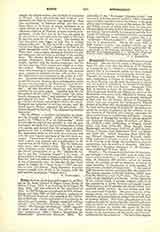

König, JOSEPH, theologian and exegete, b. at Hausen on the Aach, District of Hegau, Grand Duchy of Baden, September 7, 1819; d. at Freiburg im Breisgau, June 22, 1900. He was ordained to the priesthood in 1845. In 1847 Konig was privatdozent, in 1854 extraordinary, and from 1857 to 1894 ordinary, professor of Old Testament literature and exegesis at the University of Freiburg. On the expiration of this term he resigned his professorship. Kong’s exegetical writings include: “Die Unsterblichkeitsidee im Buche Job” (1855); “Die Theologie der Psalmen” (1857), regarded by many as his ablest work; “Das alttest. Konigtum” (program, 1863); “Alter u. Entstehung des Pentateuchs” (prorectoral discourse, 1884). Theeditorship of the “Freiburger Diozesan Archiv” was entrusted to Konig, and his period of office witnessed many notable contributions to the history of the great abbeys and civilization centers of Reichenau, St. Gall, and Fulda, several of which were from his own pen. He was highly commended for research work in diocesan history, but it is chiefly in connection with the University of Freiburg, to the history of which institution Konig contributed many notable studies (see e.g. “Freiburger Diozesan-Archiv”, XXI and XXII), that he is remembered. During the years 1885 to 1889 Konig’s activity was centered mainly on the “Necrologium Frib.”, a record of the period 1827-87.
P. J. MACAULEY

